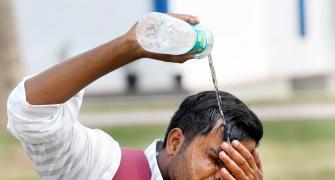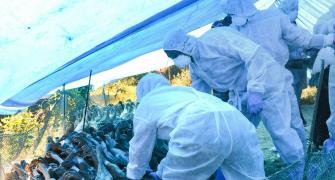 The rising temperature has put Delhi at high risk of ultraviolet rays with the national capital receiving alarming levels of radiation this season, the weather department said.
The rising temperature has put Delhi at high risk of ultraviolet rays with the national capital receiving alarming levels of radiation this season, the weather department said.
System of Air Quality and Weather Forecasting Research, which facilitates information on air quality, weather and radiation, started measuring the harmful rays received by the national capital on May 15.
SAFAR, which operates under the aegis of Indian Institute of Tropical Meteorology. an autonomous body under the ministry of earth sciences, has revealed that Delhi has been receiving UV rays much more than the normal limits. Delhi recorded 8.6 on the UV index on Tuesday while it was 8.2 at noon on Wednesday, SAFAR’s Project Director Gufran Beig said.
According to Beig, the 1-4 range on the UV index is considered as no risk, while 4-5 and 5-7 are considered as low and medium risk respectively.
“7-10 is classified as high risk range,” he said, adding that anything beyond the range of 10 is termed as “critical” or “extreme risk”.
Under the last two categories all people are advised to avoid direct sun exposure.
Pune, another city where SAFAR has been recording UV index, too is exposed to high levels of radiations. The city recorded UV index of 8.9 on May 23 with the figure hovering above 8.3 since May 17, Beig said.
Maximum range is recorded between 12 to 3 pm while 1 pm is known to be the peak time.
“One of the reasons for the high range of UV rays is rising temperature. Also, these cities are close to the equator. However, in the case of Pune, it is more closer to the equator than Delhi and this is why the UV range is higher there despite recording lesser temperature,” Beig said.
Prolonged human exposure to solar UV radiation may result in acute and chronic health effects on the skin, eye and immune system. Sunburn (erythema) is the commonly known acute effect of excessive UV radiation exposure.
“When the exposure is for longer term like it has been happening for the past one month when UV index is more than 7, UV radiation induces degenerative changes in cells of the skin, fibrous tissue and blood vessels leading to premature skin aging, actinic keratoses. Another long-term effect is an inflammatory reaction of the eye,” he added.
Image: Children play under flowing water from a hose in the sizzling heat. Photograph: PTI










